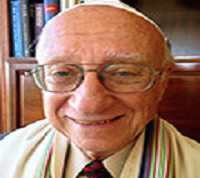To Muslims, wherever they may be,
In my travels, Muslims—women and men—time and again tell me how difficult their situation has become. In a world where they and their faith are held to account for the worst of atrocities, they do not know which way to turn, what to say, how to react.
Yet if there was ever a time when we must remain clear-headed, maintain our sense of priorities, and understand our objectives, it is now. When Islam is associated with violent extremism, discrimination and dogmatism, we must know our religion, its teachings, and its appeal to profound spirituality and to noble deeds. How we express our beliefs and our hopes, refusing to be cornered by inquisitorial detractors, but with confidence and the humble pride of those who know who they are and why they live, is a choice we must make.
Though we must condemn the horrors wrought in the name of Islam, we need not attempt to excuse ourselves for being Muslims. No need to waste time in condemnation and self-justification. Muslims possess a faith, a spiritual tradition and teachings that invite them never to see themselves as victims. Instead, they must assume full responsibility for reforming themselves. They must strive to change the world through dialogue that respects the diversity of nations, of cultures and of religions. They must engage in joint action with all other human beings in the name of dignity, of freedom, of equality and of justice; of all human beings, irrespective of gender, race, color, religion and social status. The oppressed have no religion; we must stand with them, whoever they may be. The oppressors have no religion, and we must resist them, whoever they may be.
The message of Islam is calling for peace; we must create the conditions in which it can be brought about. Each and every human being must enjoy life’s basic necessities: food, drink, housing, education, etc. Every person must be free to believe what she or he wishes, to say what she or he thinks, to move about however she or he sees fit. The needy and the refugee must be given shelter; racism in all its forms must be fought, discrimination, particularly against women and against the poor, rejected. Our environment must be respected; the soulless consumption that destroys human dignity, refused.
This is our Way. The principles are clear; the means, realistic; and the objectives, well defined. There will be attempts to drive us astray, to confuse us about our terminology and our teachings, to trap us in an attitude of perpetual self-justification. It is up to us to free ourselves from this destructive spiral, to say and to show who we are and what we believe in; to stand straight and courageous against unfair criticism and lies, and to defend our objectives faithfully. Some seek to propagate confusion in the short-term, for political gain and media profit. Our Way is far from that; it is that of the long term, for those who know that light gleams on the far horizon; who grasp adversity as a invitation to redouble their energy, not in defense of lies, but in the service of humanity. Of all humanity, for, ultimately, the truth of all truths is as simple as it is luminous: “The best among you are those that bring the most benefit to humanity.” To bear this uppermost in our minds is to know which way we are headed, and why, in peace and serenity, in sha Allah.




